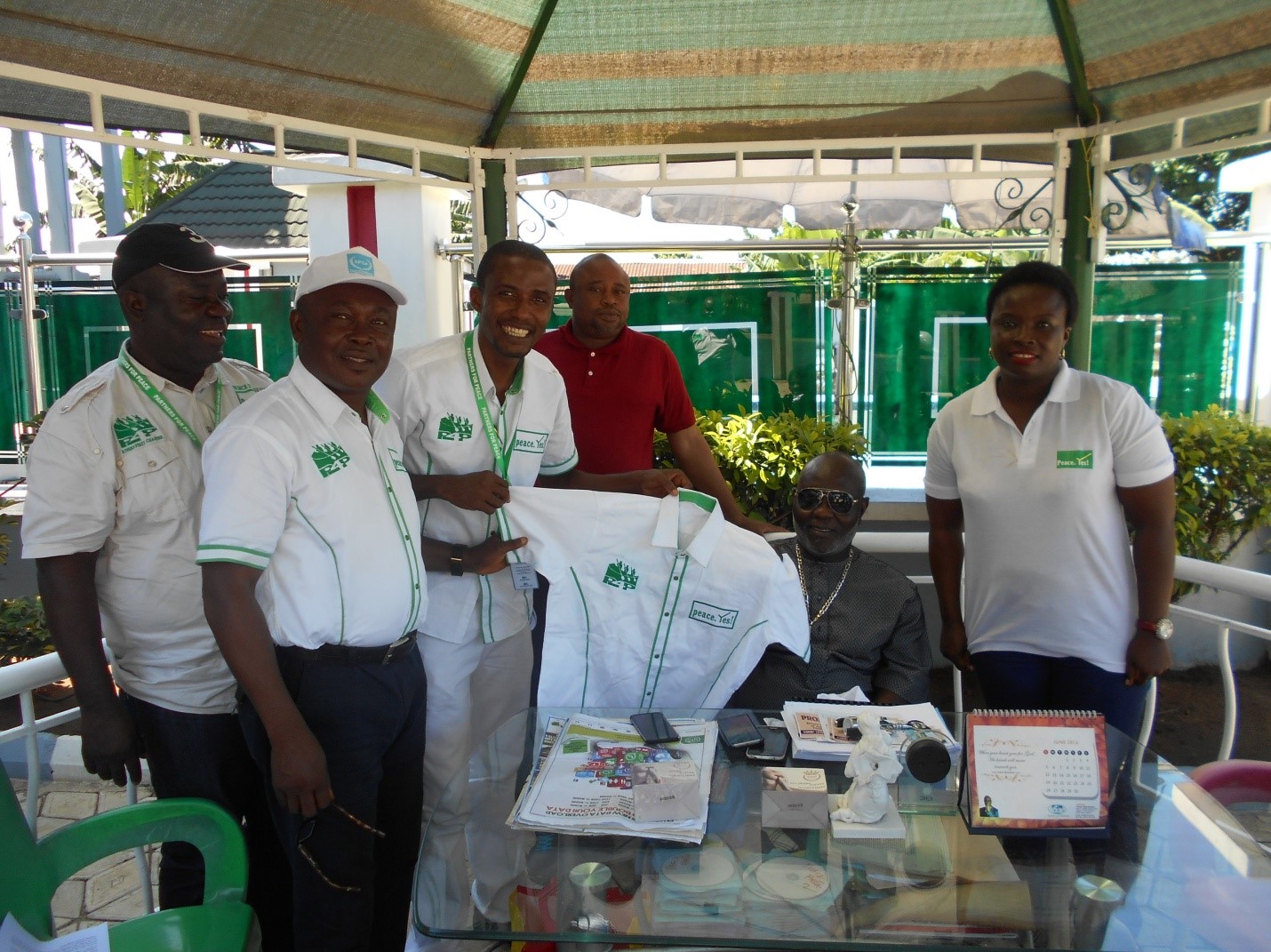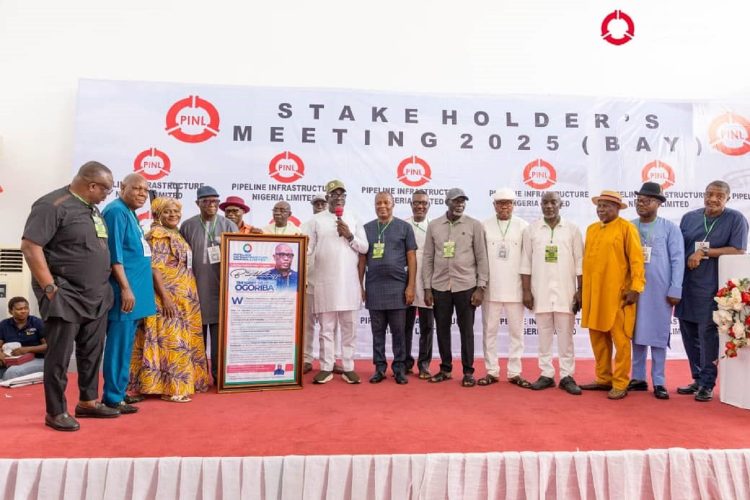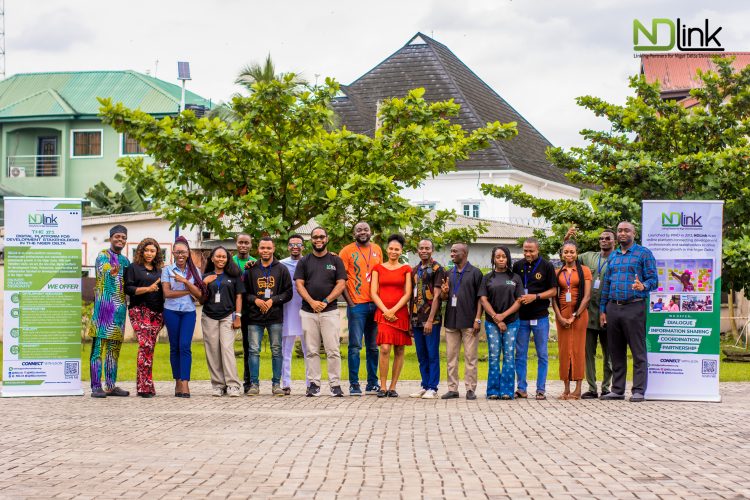
Rivers Partners for Peace pays advocacy visit to Ateke Tom
July 20, 2016May-June conflict incident tracker
July 25, 2016After a year of monthly Sunday learning and working sessions of “Startup Sundayâ€, Netopps and NDLink decided to hold a review session to highlight some of the key points of learning discovered over the past year in a Colloquium titled Startup Sunday Port Harcourt: Collaboration for a Sustainable Ecosystem. The event was held at the Foundation for Partnership Initiatives for the Niger Delta’s (PIND) Economic Development Centre in Port Harcourt  on Tuesday, July 12th.
The Colloquium kicked over with a review of the objectives of Startup Sunday by Bereni D. Fibeeresima, CEO of Netopps. He noted that Port Harcourt really does not have much of a supportive startup ecosystem for entrepreneurs, resulting in the loss of business and talent to other more progressive areas of the country like Lagos or Abuja, that have structures in place for businesses to start and thrive. The concept of collaboration and partnership, especially in leveraging dwindling resources, is particularly absent in Port Harcourt and this is often one of the biggest challenges entrepreneurs face in Port Harcourt.
Ese Emerhi, Advocacy Program Manager for PIND. PIND is a non-profit organization working to build partnerships for peace and equitable economic development for the region; PIND leverages its extensive local knowledge of the Delta, its market driven approach to key interventions, and access to market and peace actors, technical expertise, data resources and network of over 600 partners to bring real value to development work in the Niger Delta. PIND’s core aim is to reduce poverty by acting as a catalyst for systemic change in the region through four thematic program areas – economic development, peace building, capacity building, and analysis and advocacy. PIND is founded on a strong theory of change, which recognizes the interrelatedness between conflict and poverty, and this is why its market-based economic development and peace building interventions are mutually reinforcing and address the root cause of conflict and poverty in a localized and sustainable manner.
One of the projects of PIND is the Niger Delta Link (NDLink) – an online communications platform for development practitioners in the region to connect and collaborate, learn from each other, and share news about development activities by national and international donor agencies. Dayo Ibitoye, NDLink’s Content Coordinator, encouraged participants at the Colloquium to join the over 3,000 members of the platform to connect and share resources.
Session One: The challenges of operating in the Port Harcourt business environment
Moderator: Sharon D. Fiberesima, of CoralLifestylemagazine.com.
Tammy Tamarakro, co-founder Mapadom, an online business directory, mentioned the low tech literacy of the city, which was a problem for them as they tried to get as many businesses to gain online visibility. Maple Dappa of Faples.com, an online clothing shop, also mentioned the poor talent pool in the city and there was a general consensus that Port Harcourt needed a hub or an incubation program to help startups access resources, including locating the right team members.
Another problem that was raised was the poor media visibility of Port Harcourt. One challenge which startups in Port Harcourt face is the lack of media coverage and poor PR. Bereni pointed out that the internet had removed boundaries and access to resources and it was time for the Port Harcourt business community to leverage the internet and social media to tell their stories and control the narrative about Port Harcourt. Leaving the story for others to tell was no longer an option.
Gino Osahon, Manager of the Google Developers Group (GDG) Port Harcourt, raised the issues of gaining access to stakeholders and potential sponsors. He pointed out that the Port Harcourt GDG received the bulk of its sponsorship from Google and from Netopps. He felt that there should be a platform through which other sponsors could be accessed.
When the issue of multiple taxation was brought up, Mercy Ikeji of Dezionite.com.ng, a cleaning firm, gave a detailed explanation about how the taxing system works. She broke it down in a simple and humorous way so that everyone learned a lot from her about taxation at the national and state levels.
 Session Two: Accessing local and foreign opportunities
A key question for this session was spotlighting programs and initiatives that cater to the startup community. Participants were able to share their experiences with the following organizations, programs, and initiatives:
- Bank of Industry (BOI) YES Program
- Burden Entrepreneurship Program (BEP)
- Diamon BET
- Etisalat Easy Business
- She Leads Africa
- Shell Livewire Program
- Total StartUpper
However, Bereni pointed out that what is critical right now was not in spending limited resources looking elsewhere but in leveraging the opportunities and resources that were in the room. He made reference to the ‘six degrees of separation’ theory stating that each person was not more than 6 people removed from anyone else in the world. He said we should not take what we had for granted and that we should each find out how we could tap into each other’s networks.
 Session Three: The role of government in building an ecosystem
The role of government is to ensure and create an enabling environment for local businesses to thrive, by putting in place polices and structures that are not burdensome to entrepreneurs.
Amaebi Pere-Albert of Endoclan Apps, an online gaming company, spoke about the confusion with his taxes. He said his firm is registered in Nigeria but as most of his customers were in the United States, he is expected to pay taxes to the United State Government. Maple Dappa spoke about the need to be strategic in dealing with government as the government usually viewed things along partisan lines. The general consensus was that it is best if entrepreneurs stay clear from partisan politics and they could easily get tangled up in hostilities, putting a stop to their business enterprises.
Pitching Session
The following startups pitched their business ideas to the captive audience in the room during the working lunch session:
- WeFix, an online platform for quick home and business repairs, by Maven Harry.
- The Ions Group, a group of local innovators by Precious Chukundah. He screened a video of a car the group had single-handedly manufactured and which will be driven at the Nigerian Racing Eagles, founded by the CEO of GRC Motorsports, Mr. Ribi Adeshokan.
Ebika Pere-Albert of Nigeria Info 92.3 FM, gave a small talk about how impressed he was with the startups and invited anyone to get in touch with him if they wanted to be featured on radio. This got everyone excited. Â
Â
Group Discussions
We broke into six groups to discuss the various topics. At the end of the allotted time, each group made a presentation, which included recommendations. Below are the topics and the recommendations:
 1: Collaborating with the media
- Entrepreneurs need to learn and master the skills of telling their own stories more effectively
- Create networks and inroads with print and digital media
 2: Sustainable solutions to the security problem
Security is a government issue and we are limited in what we can do, however these were some recommendations:
- View the security challenge as a potential business idea: work closely with government agencies and other security agencies to map out problem areas and quick response solutions to crisis.
- Build or work with startups to build GPS technology which can be of help to security teams.
- Build systems to create transparency among security agencies and personnel. (An example was given of the recent Facebook Live recording of Police officers in the US)
- Security and criminality is not a unique problem to Port Harcourt or to even the Niger Delta. Businesses need to be more proactive in showcasing their work despite the challenges present, promoting ideas that are bankable and investor ready.
 3: Integrating the Expat and Diaspora Community into the Ecosystem
- Engage with expat professionals to mentor in local program.
- Boost the standard of our events and programs to attract the expat and diaspora communities to network.
- Get involved with Alliance France (the French organization in Port Harcourt) and see it as a platform for further engagement with the expat community.
- Maximize the use of social media to attract a savvier clientele to businesses.
4: Integrating funders and High Net-worth Individuals (HNIs) into the ecosystem
- Be proactive about networking in order to reach these HNIs and possible funders.
- Create platforms where HNIs can feel comfortable and engage.
- Create a funding system, such as a local angel’s network. which will fit the local peculiarities.
- Get organized and create a process for identifying and vetting viable startups to make it easier for the potential funders.
5: Integrating the government ministries, departments and agencies
- StartUp Sunday can create an advocacy arm that deals directly with local and state government agencies to highlight the challenges businesses face in the city and to advocate for better policies and structures
- This is an area that NDLink/PIND can provide resources to in supporting.
 6: Integrating Tertiary Institutions
- Actively provide mentorship for students
- Create opportunities for students to intern with startups
- Take Startup Sunday and other programs like it to campuses
- Get involved with the Rivers University Advancement and Linkages Center (RUALC)
FEEDBACKÂ
Conclusion
The feedback received from the group was impressive:
- Stella Nnaji, who makes lead-free paint, got an order from someone in the room.
- The Colloquium inspired some people with new startup ideas for their next project
- Participants networked with each other, and in particular, started sharing resources with one another.
- Active businesses were able to get new subscribers, leading to potential new deals being brokered.
 The colloquium gave us the opportunity to gather stakeholders in the Port Harcourt startup ecosystem, particularly past pitchers of Startup Sunday, and to gauge the pulse of the ecosystem.  A few issues with the ecosystem include importation of talent and lack of skill development platforms in Port Harcourt. An example of the latter was Maven Harry who was sent by Intels to a hub in Lagos for training. Precious Chukundah and Maple Dapper are another example of startups that provide top quality service and products, but face a situation where clients would rather patronise businesses outside of Port Harcourt because of perceived stereotypes.
As a result of challenges and issues, Netopps came up with the action plan below:
- Launch an advocacy program to improve policies for businesses like Endoclan and provide incentives for startups.
- Build capacity and raise awareness to reduce importation of talents.
- Build up existing local media platforms and encourage local startups to be confident, global in their approach and be proactive in building a sustainable ecosystem.
- Host the Startup Port Harcourt Week event annually to inspire and attract more stakeholders and foster the growth of the Port Harcourt Startup Ecosystem.
- Build an innovation hub to provide trainings, work and events spaces and foster integration.
Photo Credit: Ochuko King – www.ochukoking.net














